3RD skin – Documentation
Artistic Research on Tactile Perception and Haptic Technologies for Performance and Mixed Reality
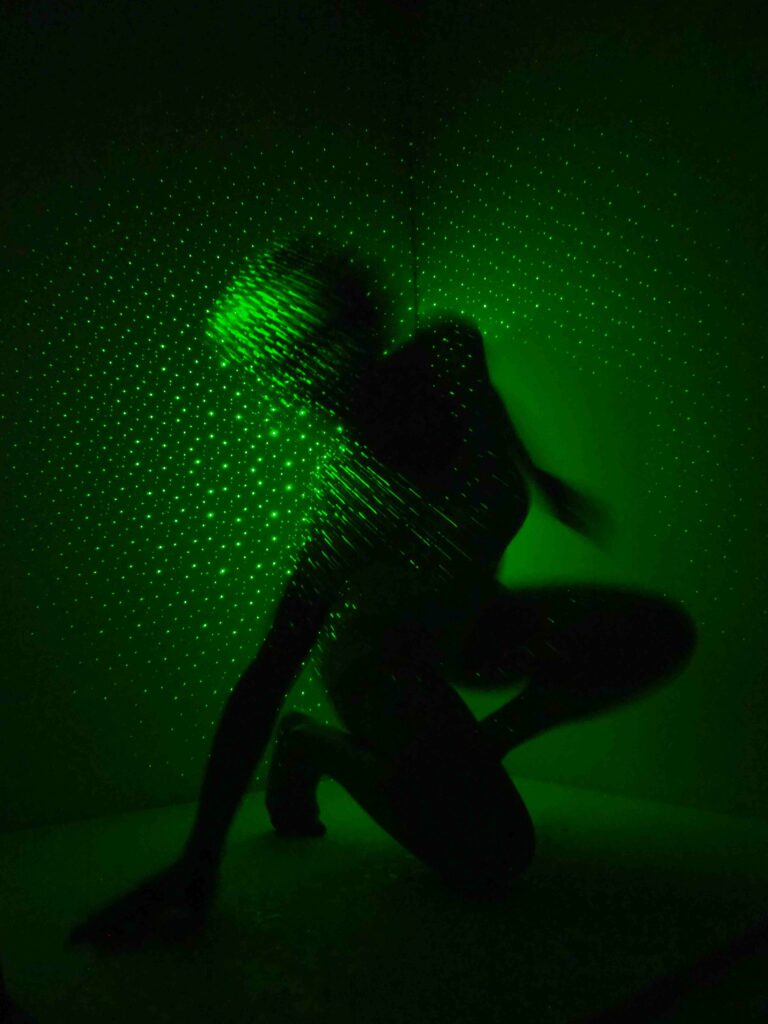
Artistic research residency funded by the Minister of State and Federal Government Commissioner for Culture and Media, the Fonds Darstellende Künste and Flausen +, hostet by the TD Berlin.
Time period: January / February 2021
In his book Other Minds the philosopher Peter Godfrey-Smith explores the evolution of intelligent life and subjective experience: “What does it feel like to be an octopus? To be a jellyfish? Does it feel like anything at all? […] Subjective experience is the most basic phenomenon that needs explaining, the fact that life feels like something to us.”
For 3RD skin Marina Dessau stepped into an octopus’s tentacles. She read into what is known about cephalopods‘ and other animals‘ behavior and intelligence, as well as into the general concepts of AI-based systems as a means of sensory augmentation. She experimented with self-built, purposefully visible tactile contraptions and began with the technical planning of haptic feedback applications for performance and mixed reality (tactile vision substitution systems).
The idea of her basic artistic research was to explore the effect of sensory stimuli such as pressure, touch, heat or cold when combined with visual and/or audio material in an amplifying way as usually aimed for in an immersive MR experience. She also disconnected tactile sensations from a perceptual logic by applying nonsensical combinations of stimuli and/or contradictory tactile information.
Apart from basic experiments with tactile sensation, Marina experimented with the (im)possibility to take on another animal’s perspective and experience. While i.e. taking on another animal‘s POV through VR glasses, such as an action cam filmed flight of an eagle or a journey of a shark, and while physically copying the other animal’s movements (as close as one can get with a human body), she added various sensations to the body experiment, such as air flow from various angles, different temperatures, tactile stimuli etc. Some attempts simply led to a confused and overstimulated nervous system. At other times, a promising window into imagining ‘other minds’ opened up: The stimulation with unfamiliar tactile information in combination with the immersive VR-visuals led to altered and unfamiliar states of consciousness. These unexpected body-sensation-based interrelations and unforeseen sensual connections with the surroundings were repeated and described in notes.
The skin turned out to be a projection membrane to contemplate on and experiment with the assumption of how other species or neural networks might assemble their worlds. While the human point of view cannot fully be stepped out of, with the help of the ‘thinking body’ Marina will keep approximating questions around subjective experience. During the subsequent phase of the research project, human perspectives will be added and combined with tactile sensory input.
3RD skin – steps:
- Daily tactile awareness training and perceptual learning to improve tactile discriminability and enhance perception skills
- Experiments with exposure to tactile stimuli only (one sensation at a time while trying to reduce stimulation of all other senses)
- Experiments with exposure to tactile stimuli combined in unusual ways (simultaneous exposure to hot and cold on close by skin areas)
- Combining touch and audio (including non-sensical combinations)
- Adding visuals (experimenting with VR and touch)
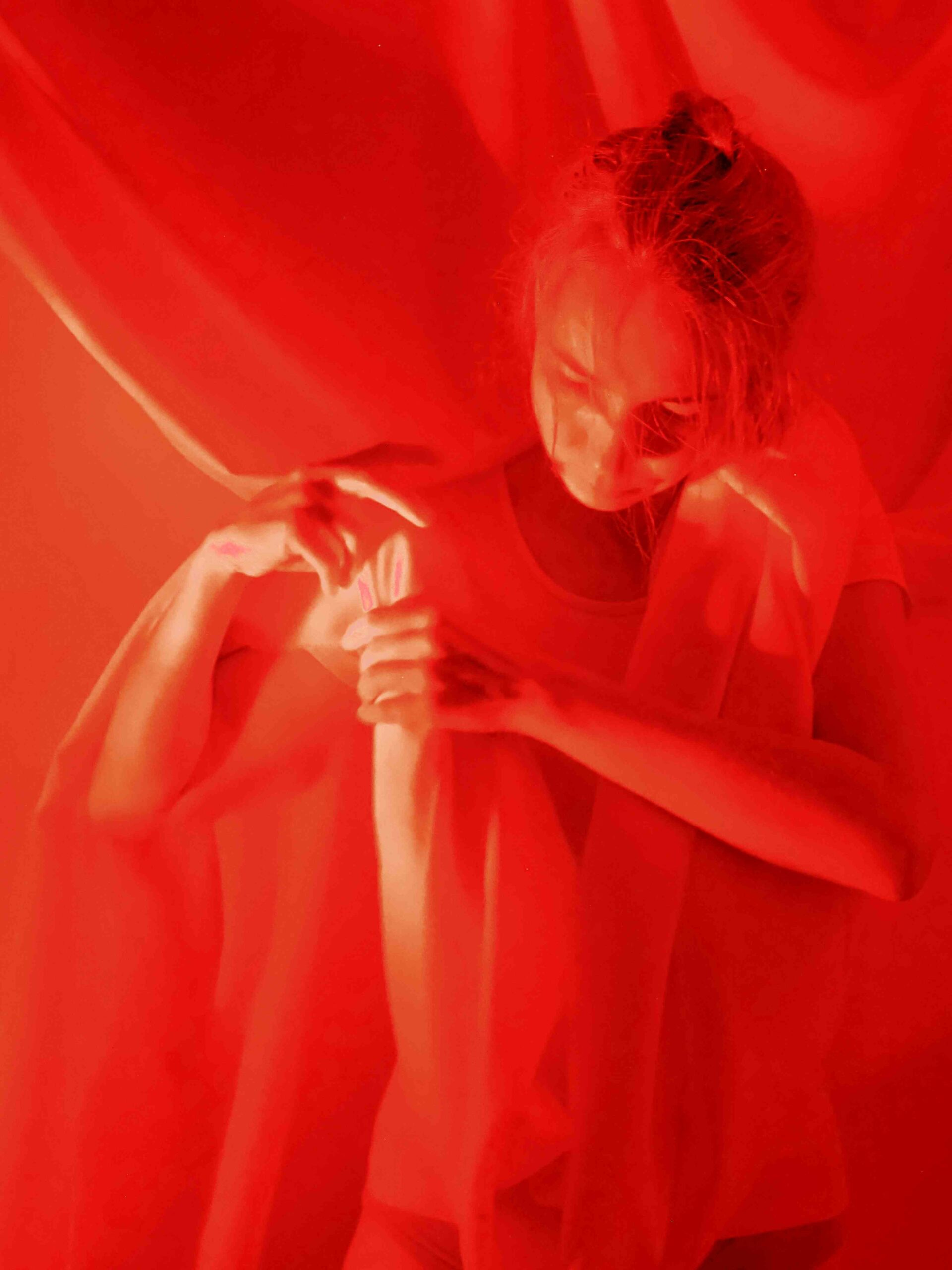
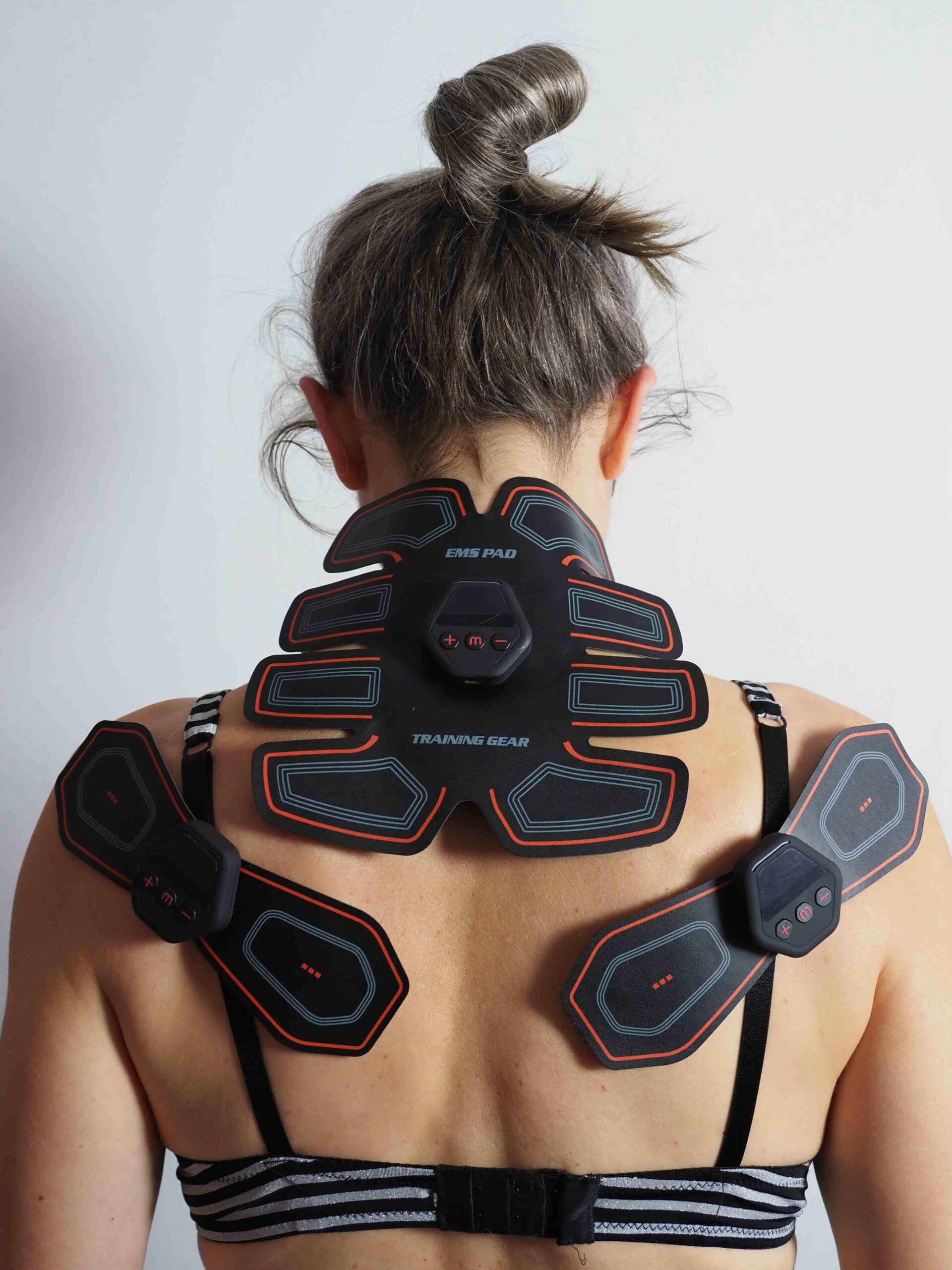
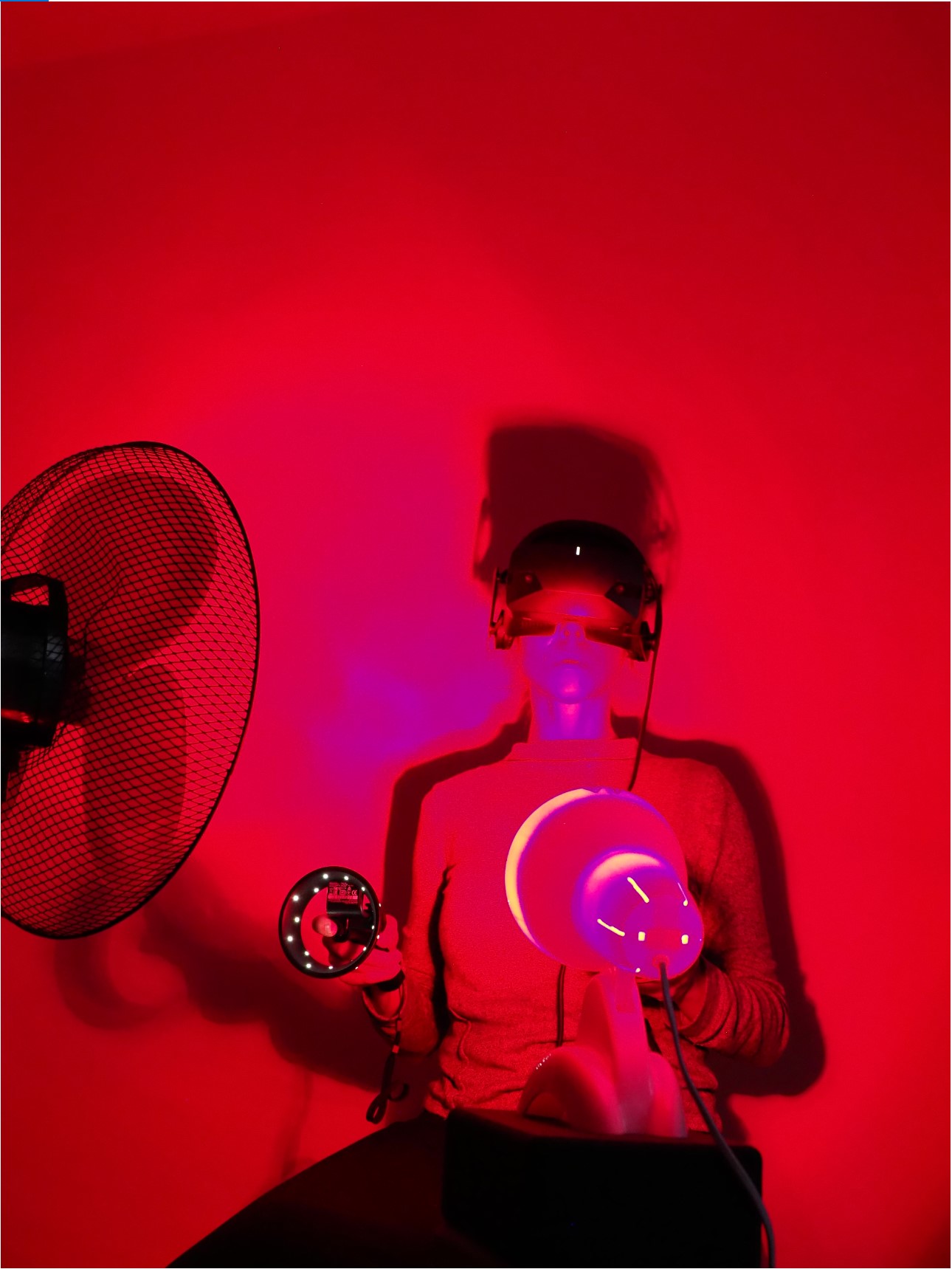
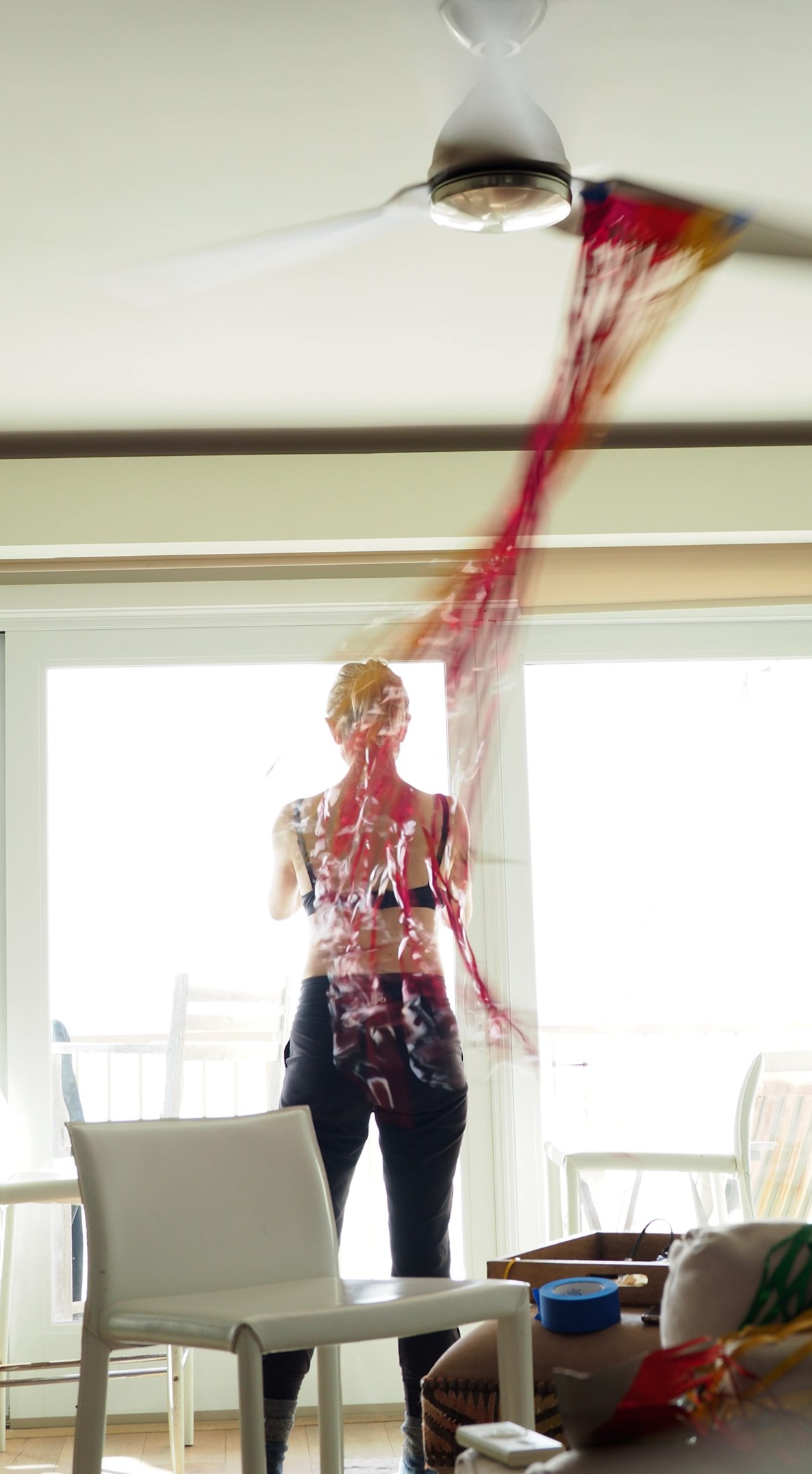

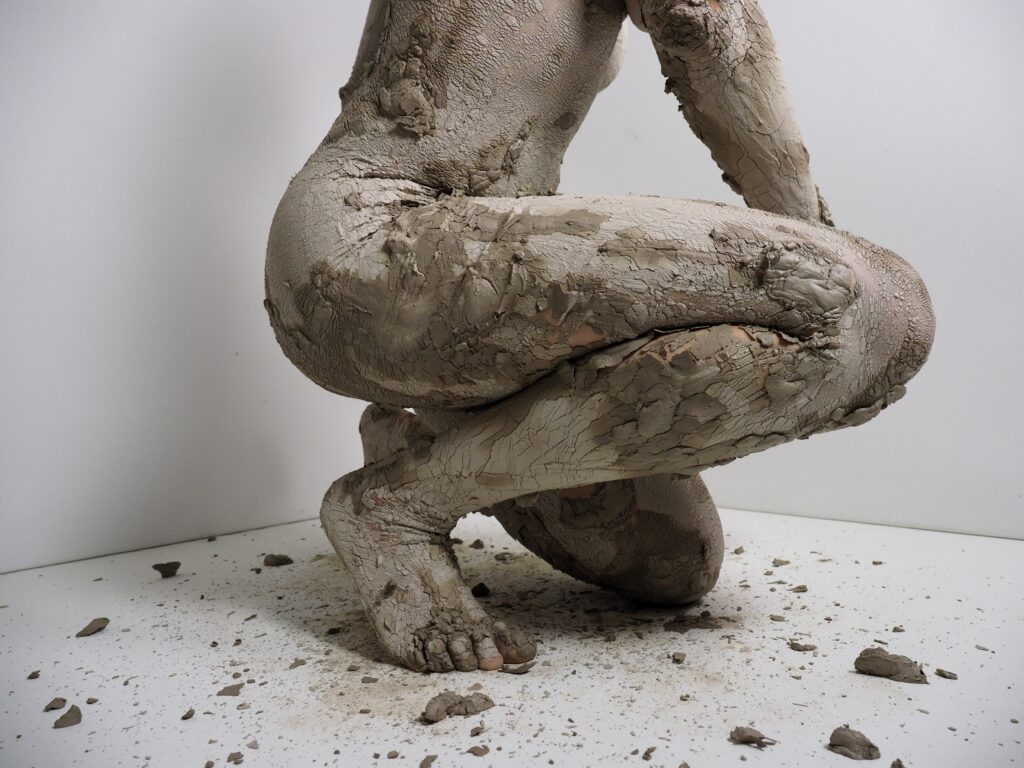
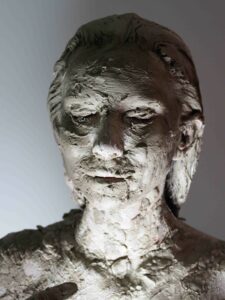
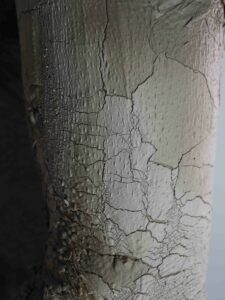
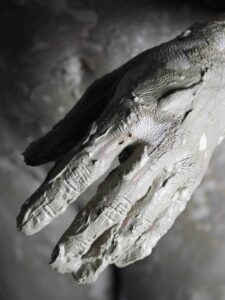
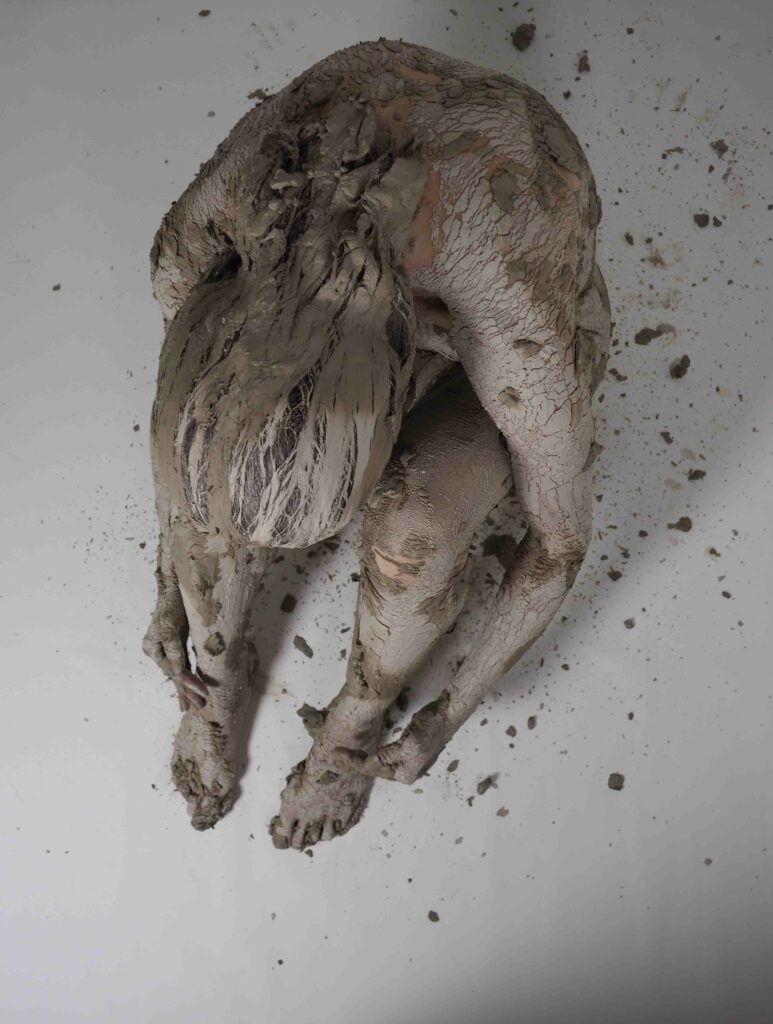
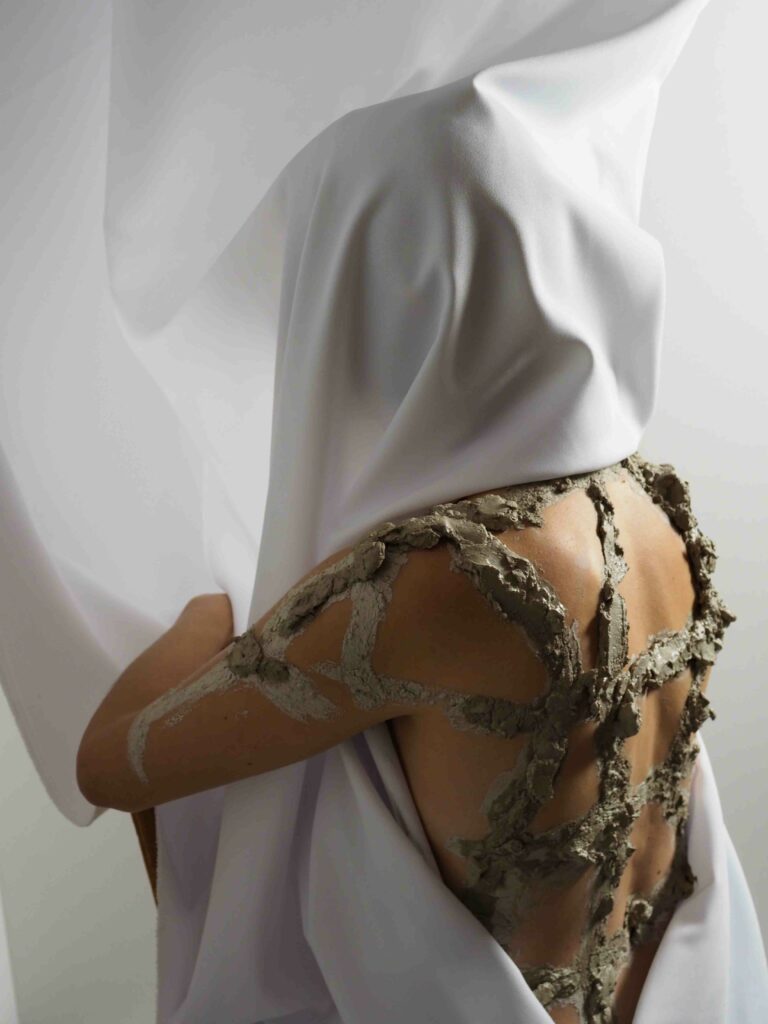
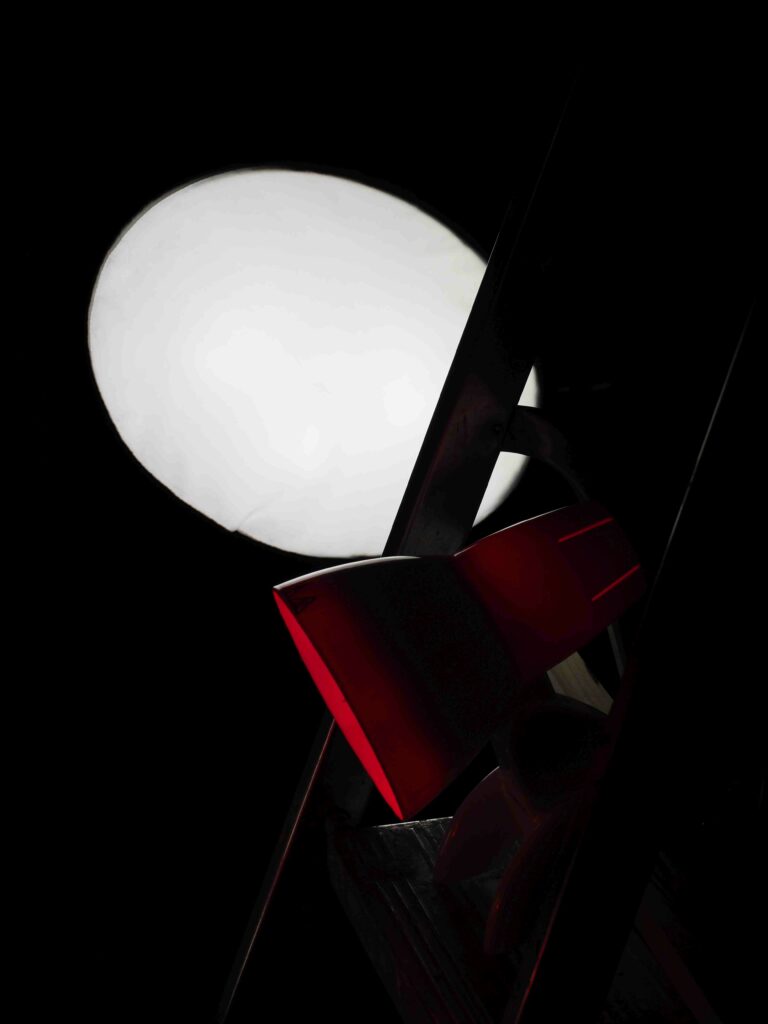
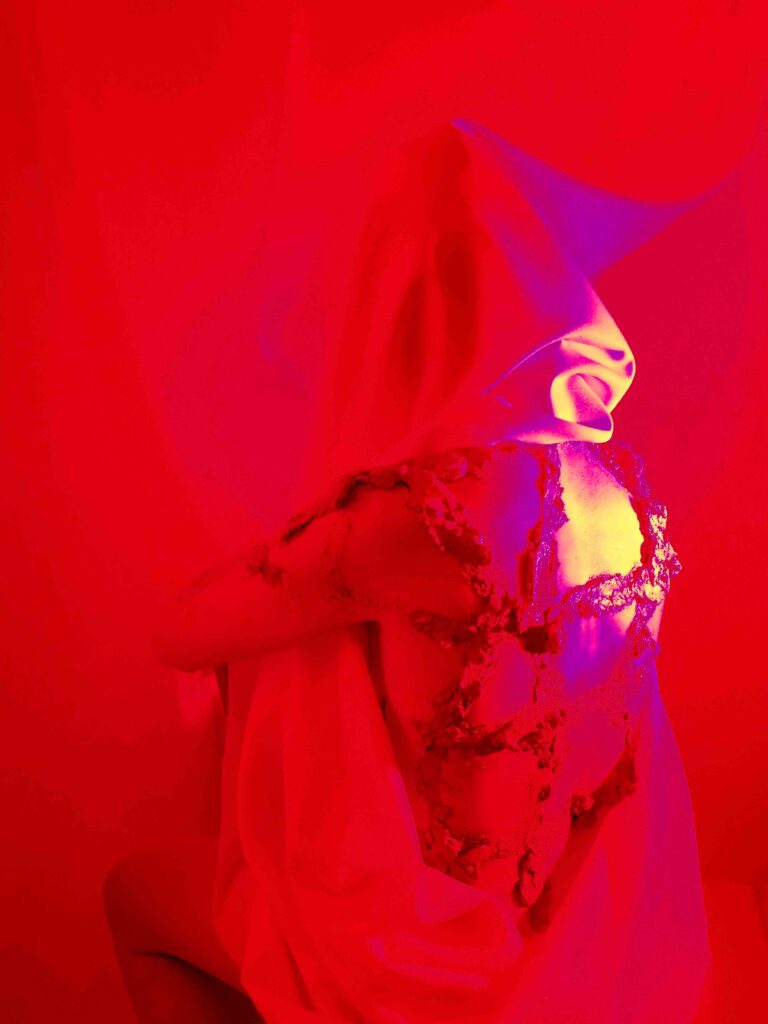
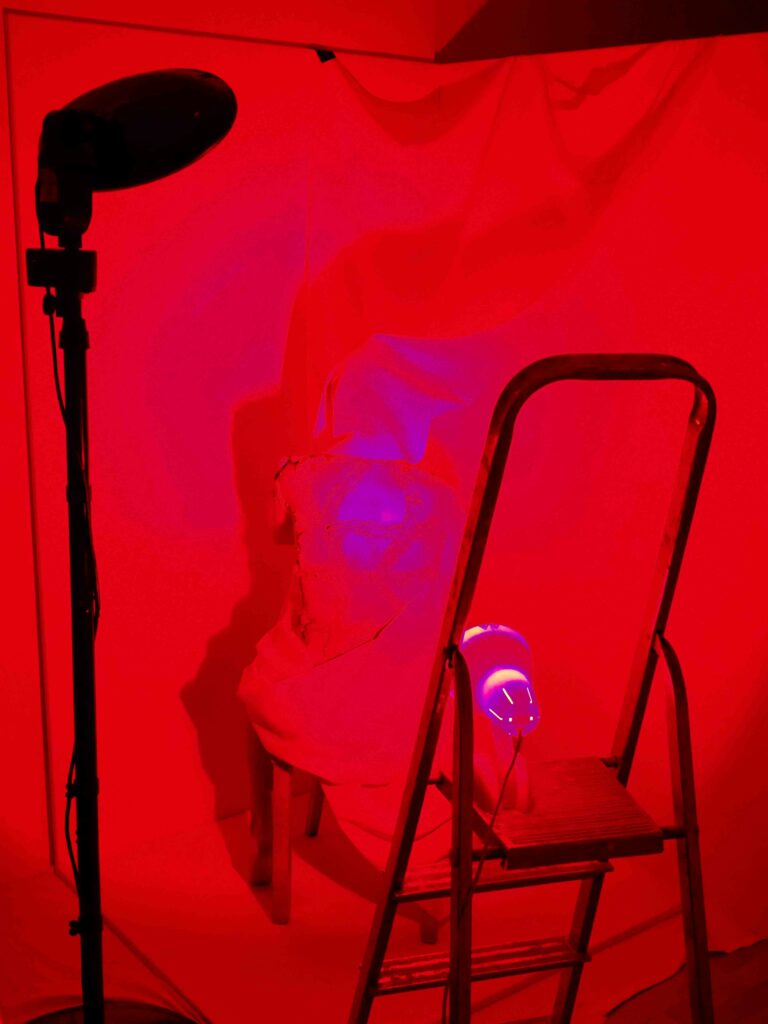
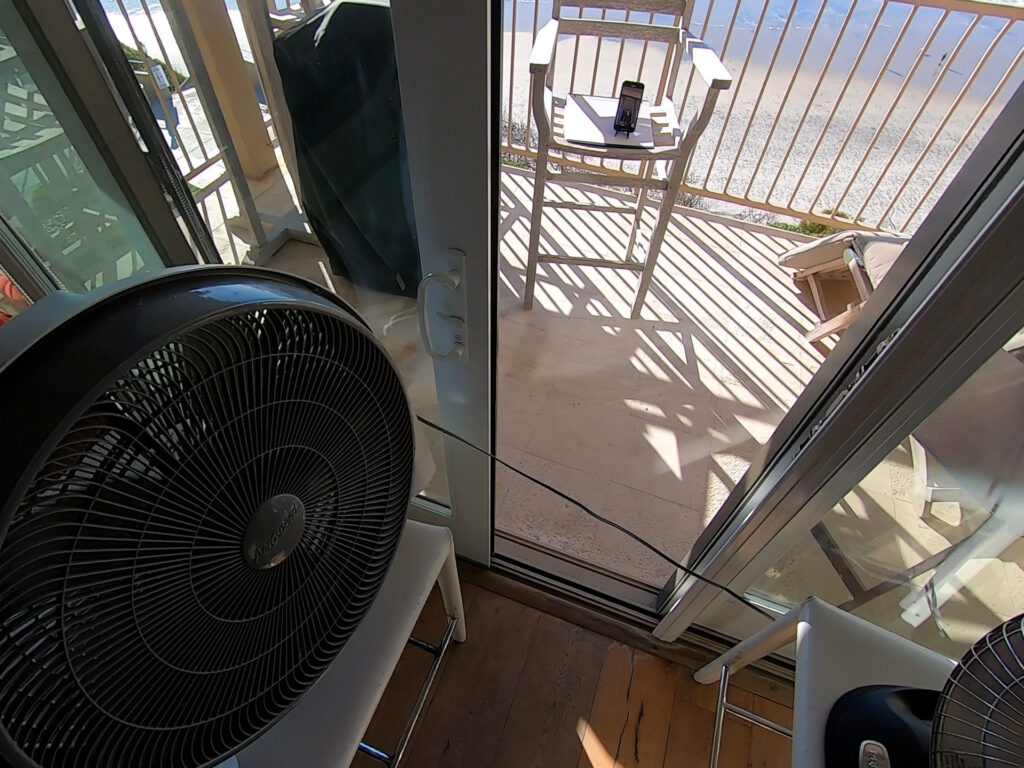
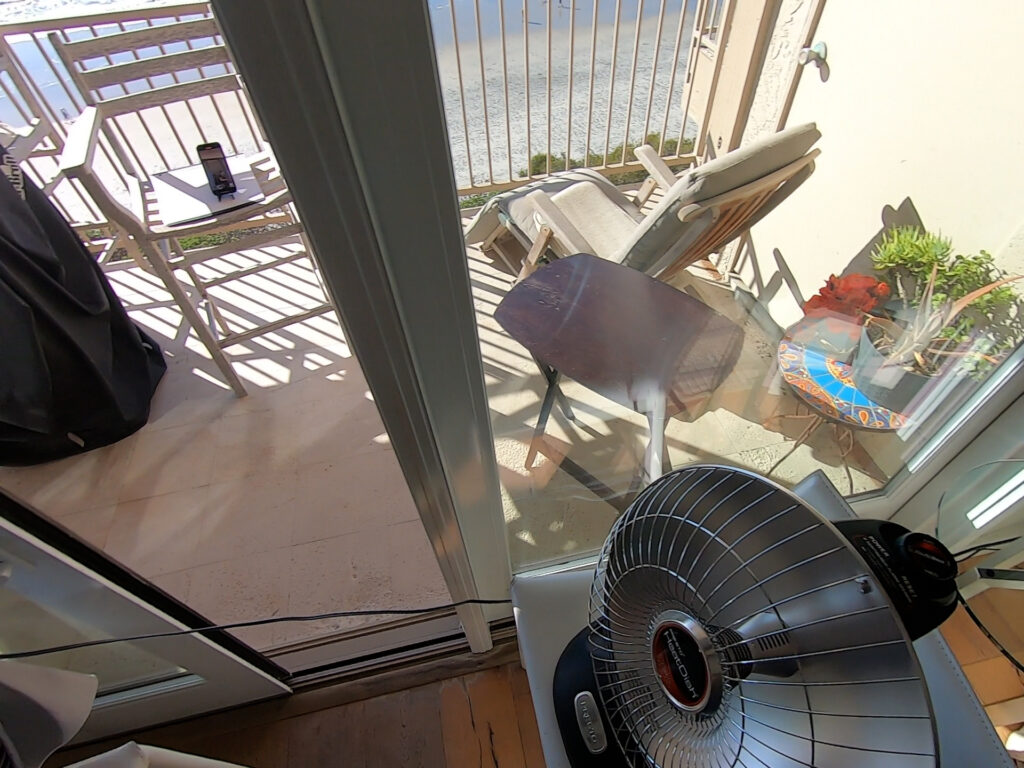



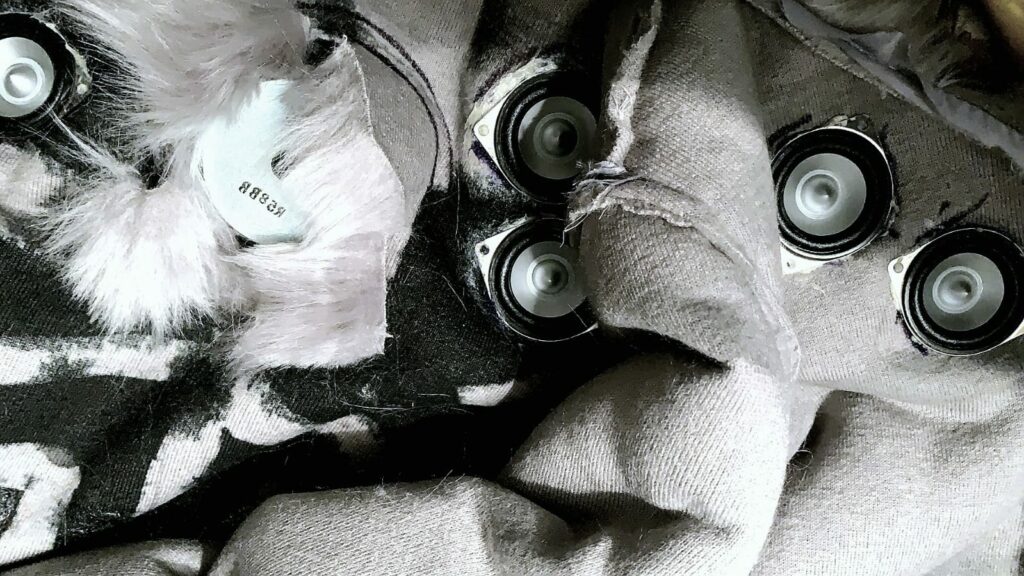
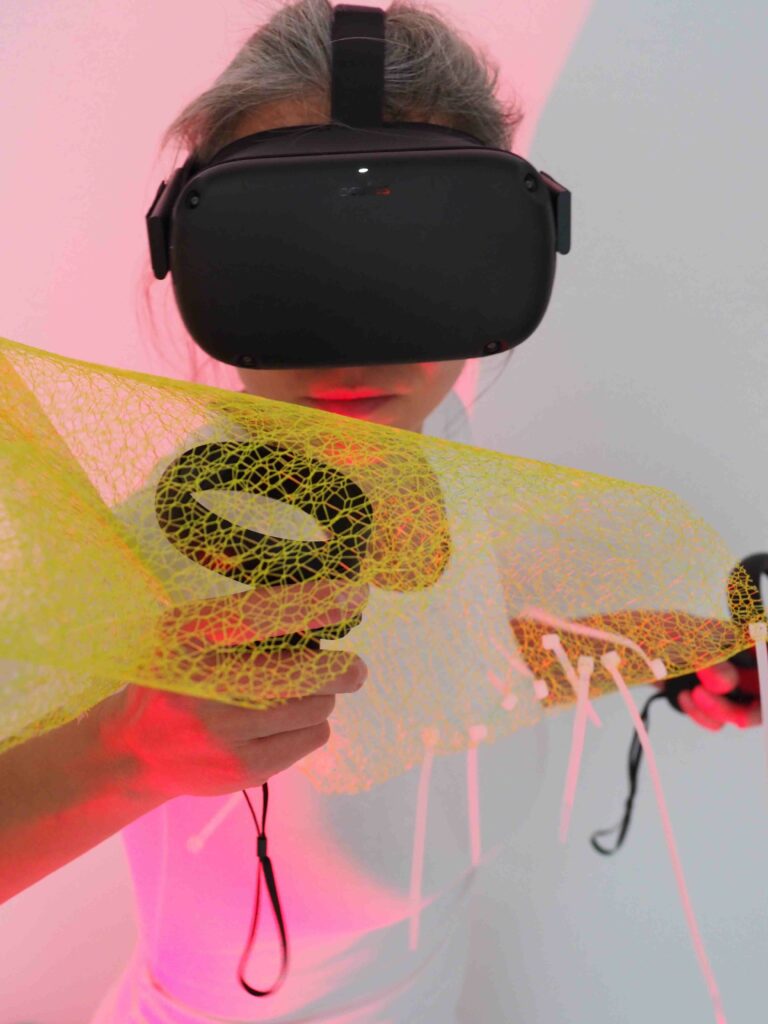
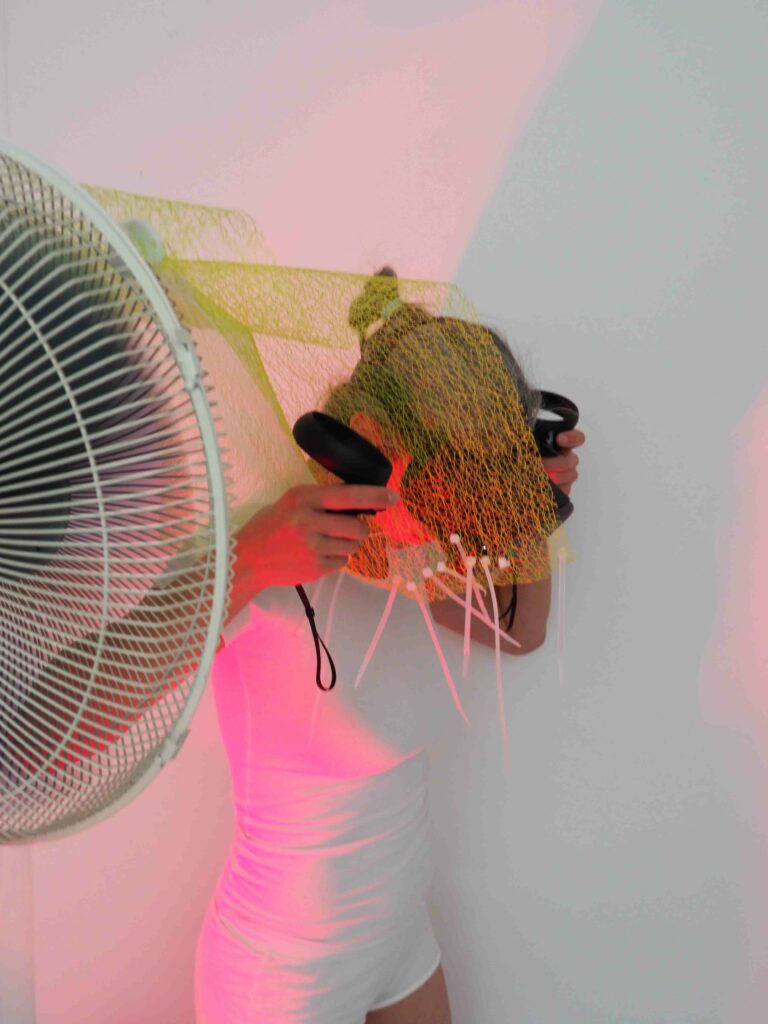
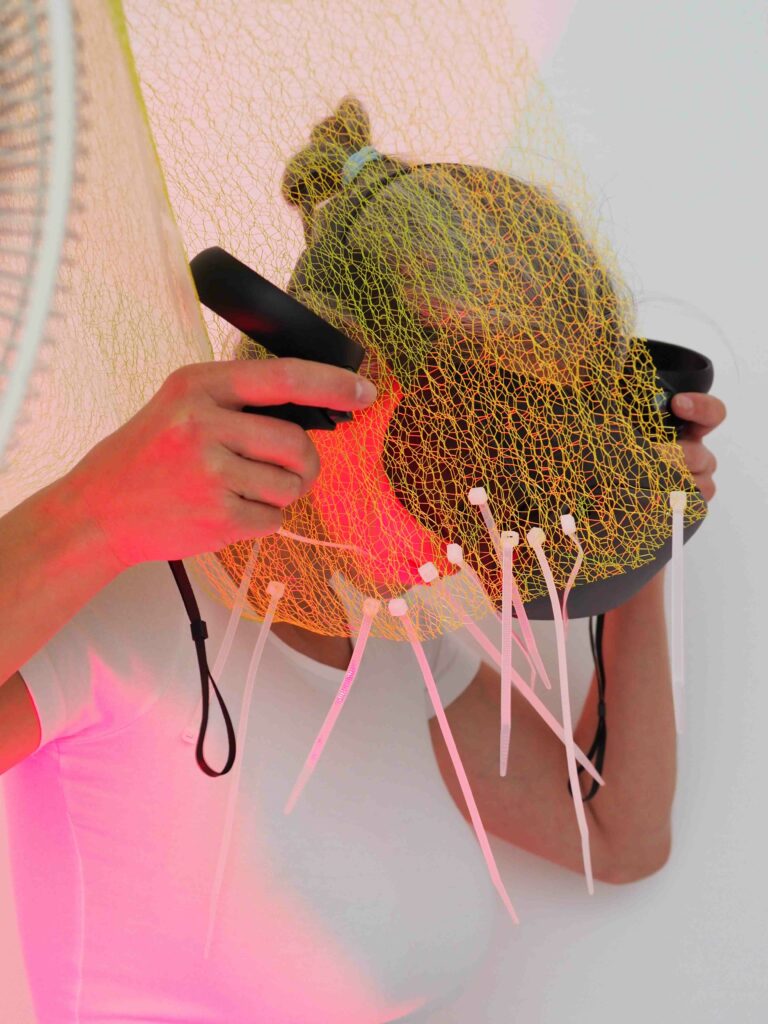
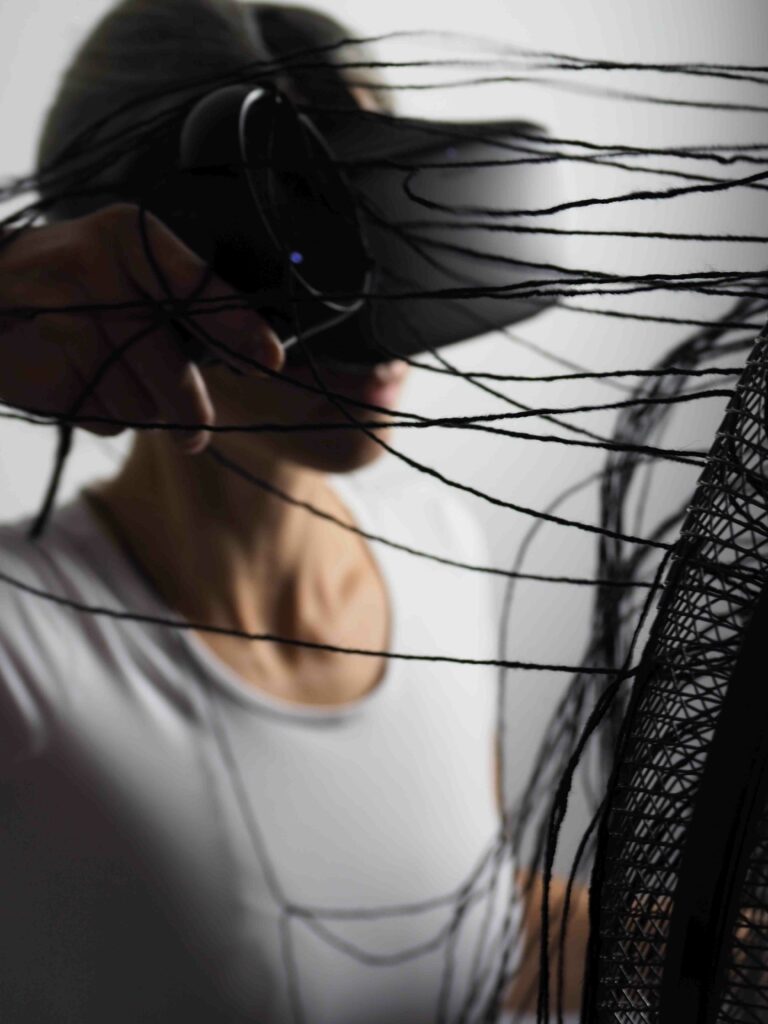
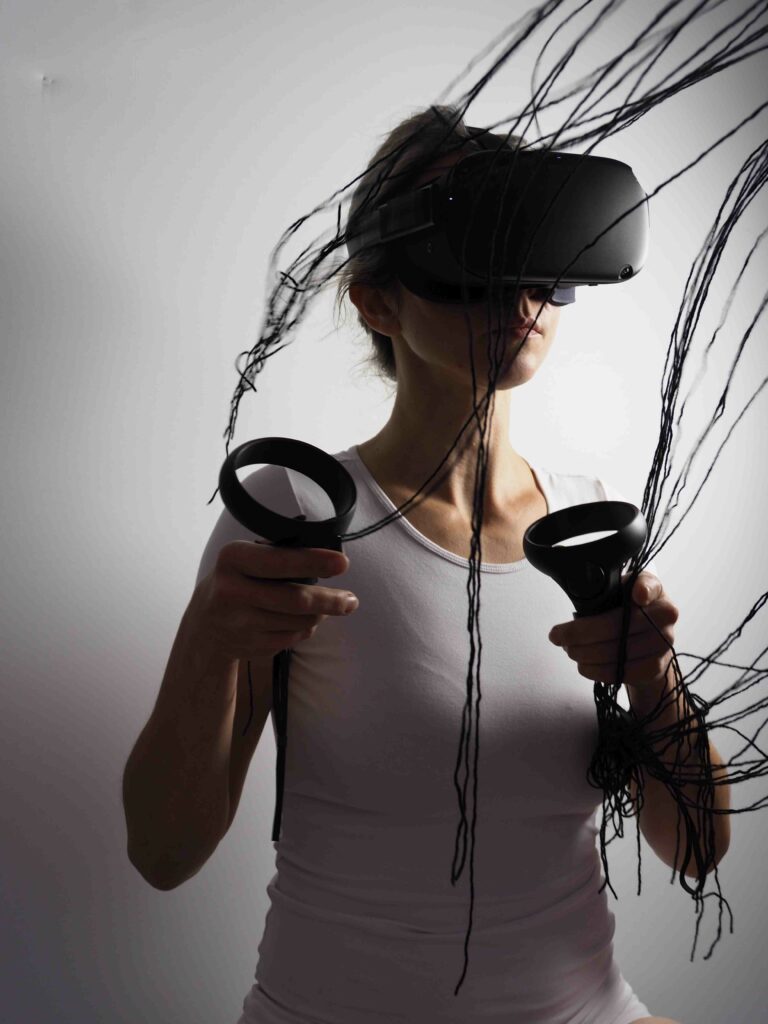
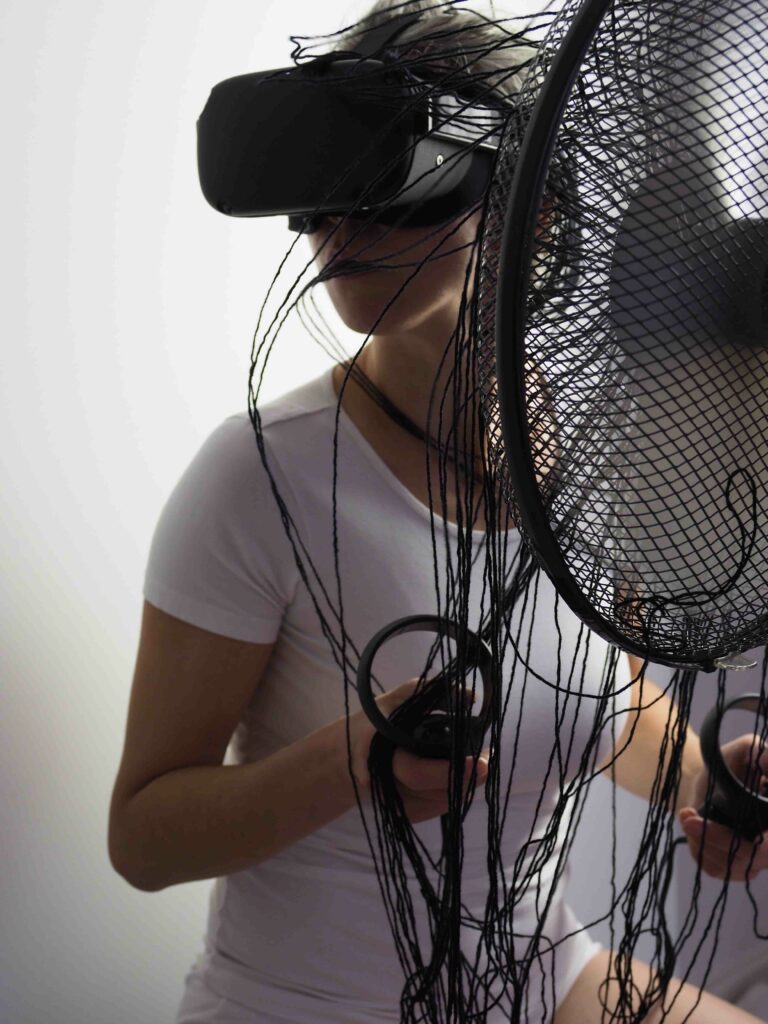
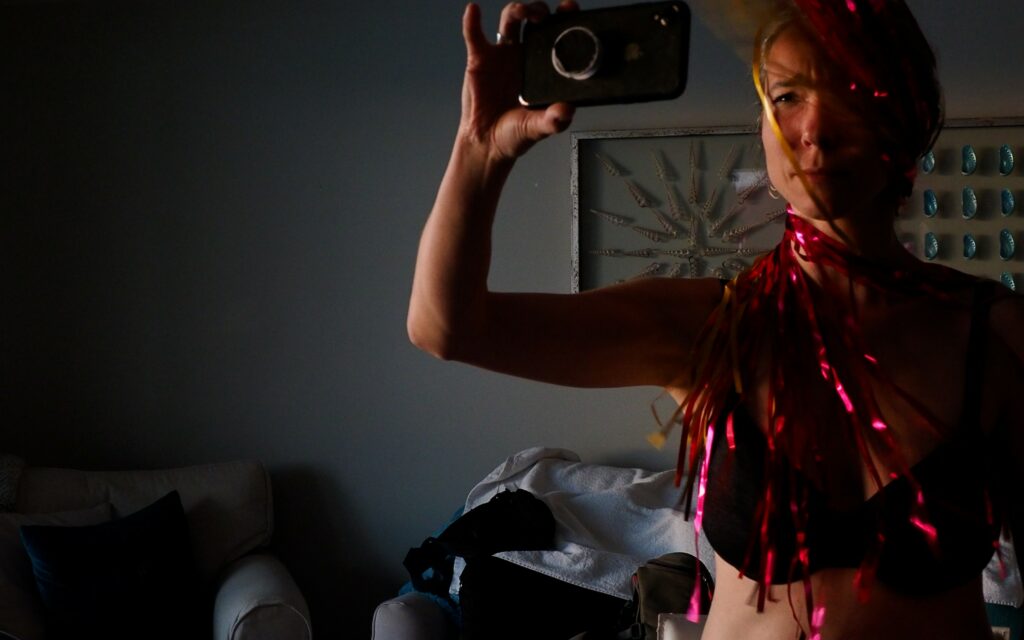
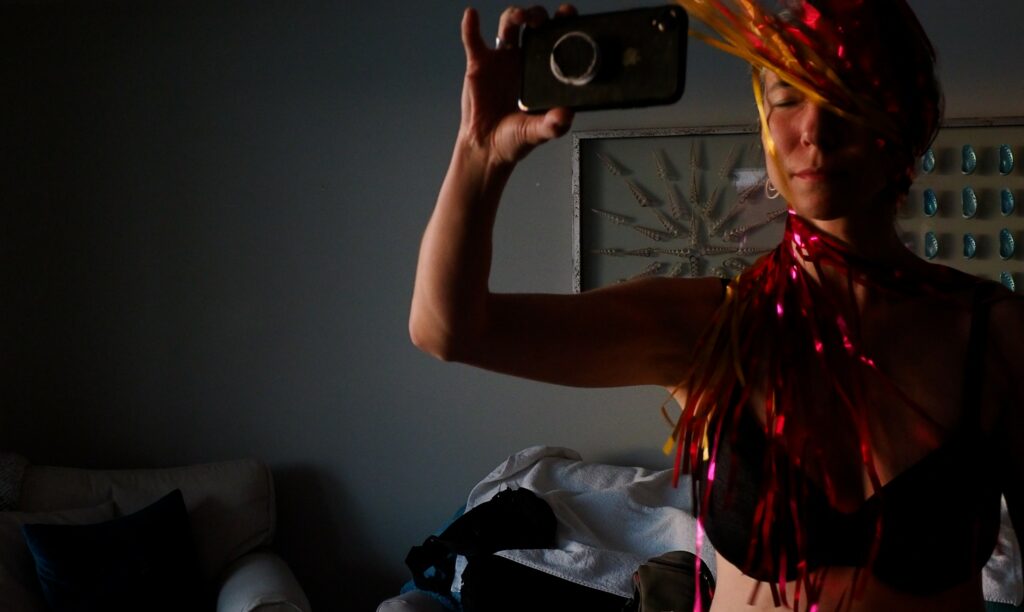
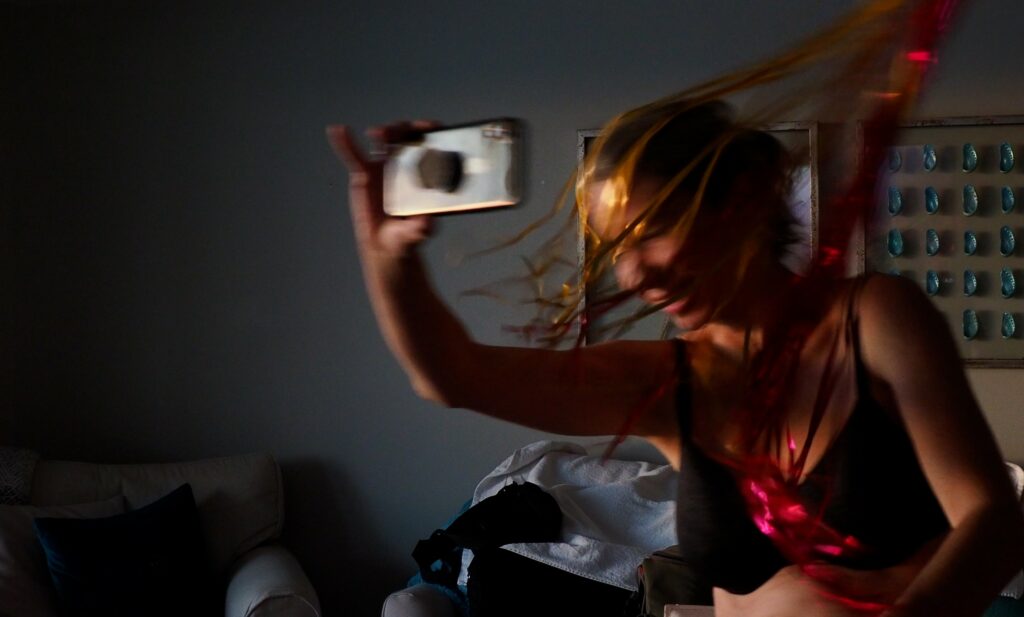
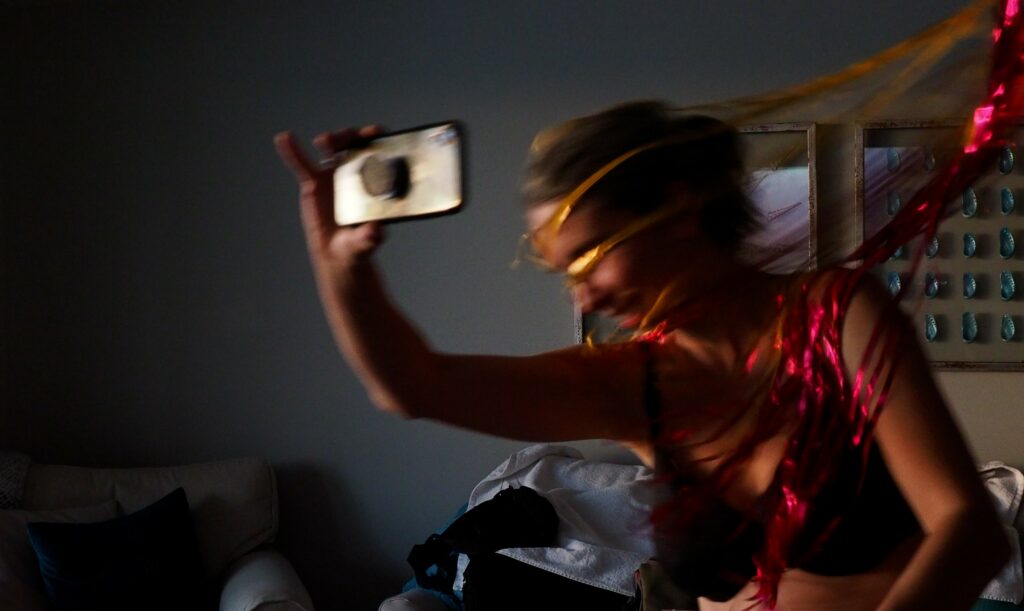
pics © Marina Dessau / lars gressmann